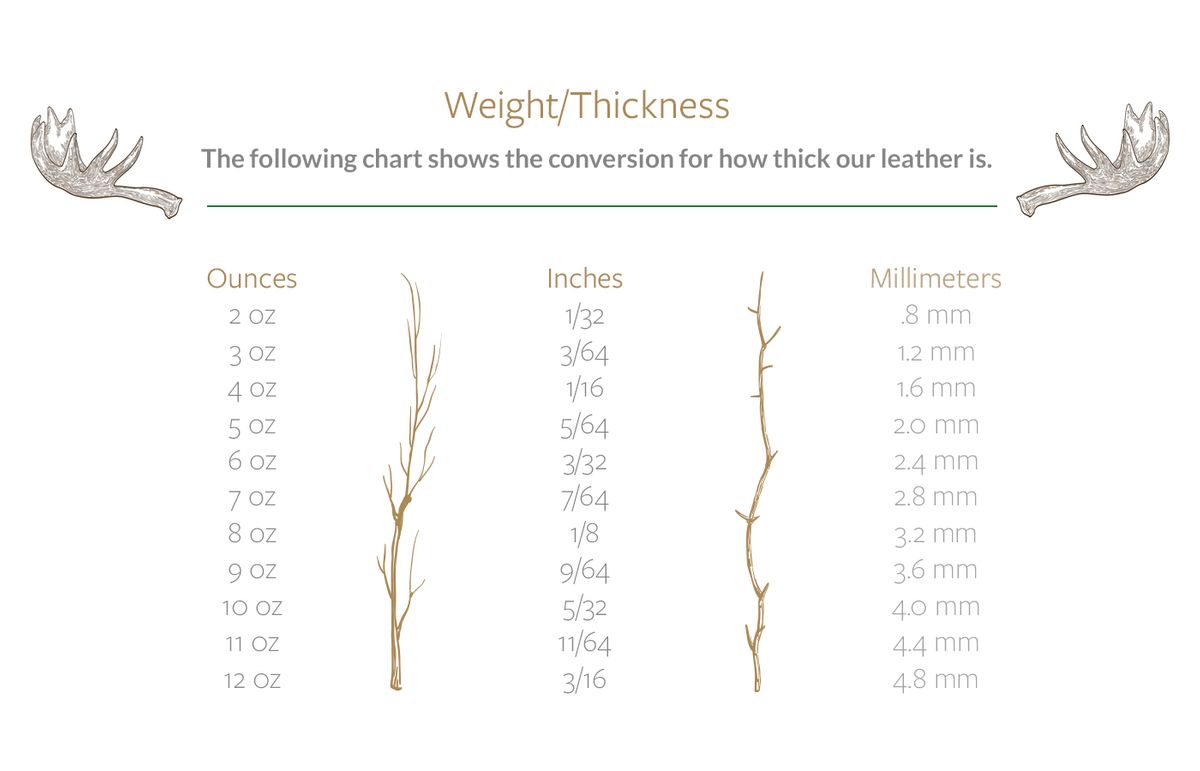Weights
Weight of cow, deer, bison, and elk hides matter.
However, when talking about leather, it's not how much the product weighs, but the thickness of the product. This often confuses consumers of leather products. Leather weight can vary a lot because it depends on the type of leather used, the dye used, and how much oil is in the leather. Thus, thickness is more important and a better indicator of high quality leather products.
FAQs About Leather Weights
American Elk & Deer offers the best in elk, deer, bison, and cow hides and leather. Our team has years of experience in ensuring high-quality, authentic products at fair prices. Below, we'll unpack the weights of leather. Shop all of our leather for sale today!
Why is there a range of leather weight/thickness?
Just like your skin, the thickness of an animal's hide varies. This is why a range is usually given when shopping for leather or hides.
Why is leather measured in ounces?
The reason leather is measured in ounces is because it's a throwback to the textile industry. Historically, the garment and textile industry measured its fabric in ounces, so the leather industry just adopted the same standards.
Does the weight of the leather matter?
Yes! In general, the thicker the piece of leather, the more durable it is and the longer it will last. It also tends to be a bit more stiff, which is useful for leather products, such as belts and wallets.
What is the perfect thickness for leather?
This question is hard to answer, as it depends on your usage. Thin leather tends to be a bit more fragile, but it's great for making jewelry. On the other hand, thick leather is great for belts and coverings. Too thick of a leather product can be a bit unworkable, however. There is a fine art in leather making, that for sure!
